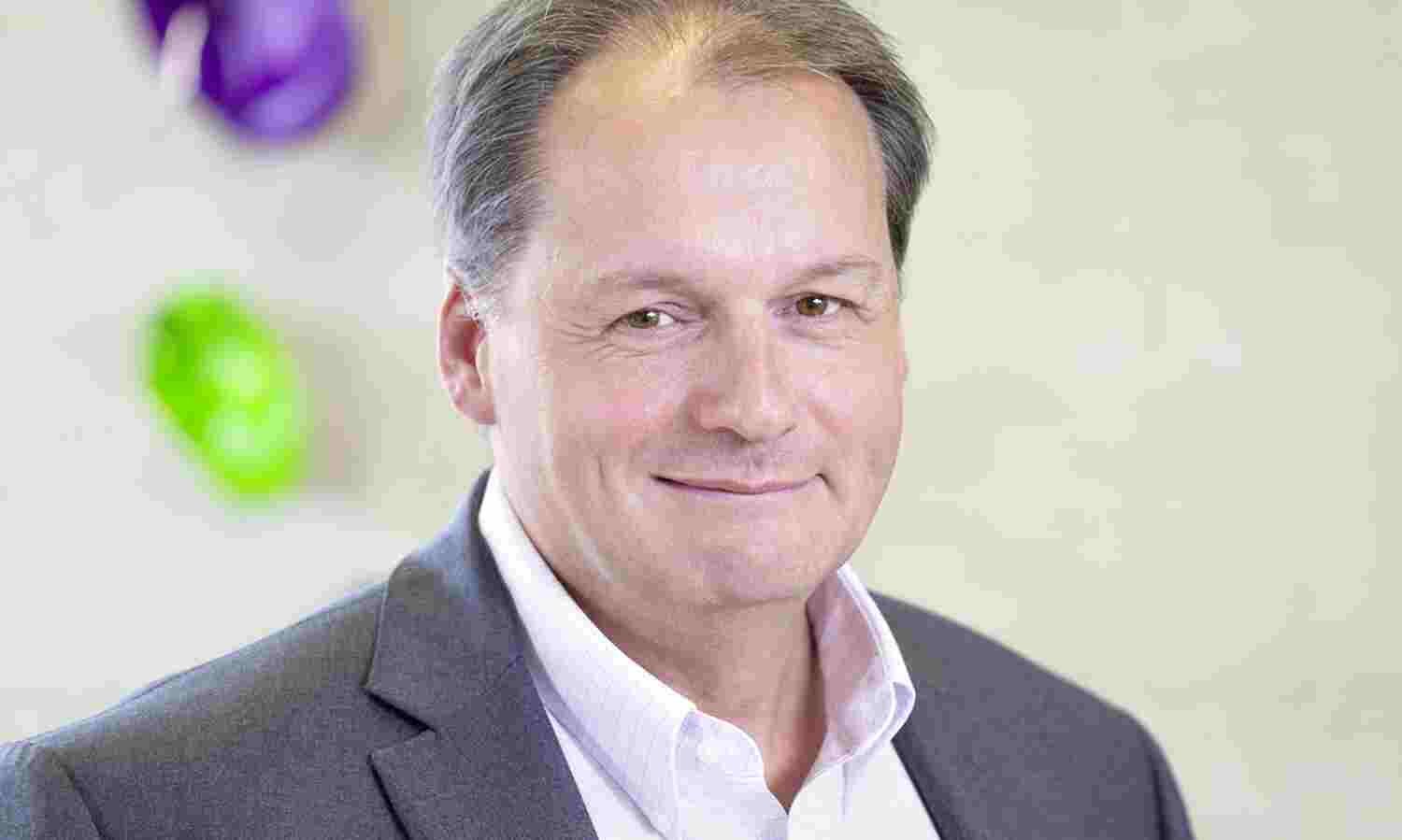India has potential to be fastest growing in APAC
07 April 2014 | Influencers | By Rahul Koul Koul

Mr Christian Henry, senior vice president and chief commercial officer of Illumina
New Delhi: Illumina, Inc., was listed #1 in the top 50 global smartest technology companies by the MIT's Technology Review magazine. The company has been a market leader in the genomics and sequencing technologies. BioSpectrum spoke to one of the top executives of the company to know its India focused strategy
Q: What is the purpose behind your visit to India? How do you perceive India and Asia-Pacific region as a destination for doing business?
Since this was my first visit to India, the basic purpose was to meet customers and understand their needs. India is a substantial market for sequencing as it relates to medical research, agriculture, non-invasive prenatal testing and biopharma.
We consider India in particular and Asia Pacific in general as important regions for our growing business. India still is a very challenging market for technology companies. Its import/export policies, regulations and government funding processes are complex at times. However, we see India as an emerging market; it has a lot of potential. We will keep investing for the long-term benefits in genomics. Apart from India, the Japanese market has been promising. It has had resurgence in genomics and the government believes in the genomics movement. We saw an incredible growth there. The market in China continues to grow quickly as well. Both China and Japan are relatively bigger markets than India. China has seen decent growth in last 2-3 years but it has been a steady growth and not exponential. We think that the exponential part of the curve in India is still to come. I think there is a lot of opportunity over the next 4-5 years and I would expect to see exponential growth in India. I feel that there is no reason why India cannot be the fastest among all the nations in Asia Pacific.
Q: How has the genomics landscape transformed over the period of time? Where do you stand here?
We have seen on global basis that the market for genomic technology has grown and it is going to be a multi-billion dollar industry. For Illumina, our overall total addressable worldwide market for 2014 is approximately $20 billion. The markets which Illumina's technology addresses are large, untapped and numerous; including but not limited to, oncology, reproductive and genetic health, forensics, consumer, agriculture and molecular diagnostics, as well as basic, translational and pharmaceutical research. Further, there are many other market opportunities which could double or triple the company's addressable market in the future.
In the next decade, genomics is going to have a significant impact on the treatment of cancer and genetic diseases. Much research has been done and the Indian market can benefit greatly. This is especially true when we talk about the reproductive and genetic health. I think the potential of genomic technology for use in developing diagnostics and conducting non-invasive prenatal testing is phenomenal. These uses alone will change the healthcare landscape. Additionally, we estimate that the addressable market for oncology is approximately $10 billion.
At Illumina, we put a tremendous focus on developing new technologies at a lesser cost. We have a strong market share thanks to our unique product portfolio. One of our core strengths has been to create new products that are truly innovative and transformative. For us, the future involves creating a wealth of information that can be used to inform research and ultimately help treat disease. Our CEO, Mr. Jay T. Flatley says, 'Come one day, every baby will be sequencing at birth' and we believe that. We are making our sequencing technology a powerful tool for the human use.
As I mentioned, our technology has applications in different areas. Some of our customers are doing research in agriculture to ensure our food supply is safe. Others work in forensic science, population sequencing, cancer and reproductive and genetic health. For population sequencing, the goal is to better understand the true nature of the genetic diversity across populations. To me population sequencing is one of the most exciting areas, as we come to know about genetic basis of a disease in a holistic way across different ethnicities. This can change the face of the healthcare.
Q: Please throw some light on the latest trends in the sequencing? How has it transformed the research over the period of time?
There have been continuous evolutions of technologies. I think first of all the future looks extremely bright for whole genome sequencing. At Illumina, we have reduced the sequencing cost considerably. When the world started whole genome sequencing in the 1990′s, the Human Genome Project spent $2.7 billion over 13 years to sequence the first human genome. The HiSeq X Ten, which we launched this January, can sequence the entire genome for researchers for $ 1000. There is a two million fold decrease in the cost in less than a decade. We see quite a bright future ahead for the technology.
There have been several companies trying to develop new sequencing techniques (semiconductor and nanopore technologies), but the reality is that if you look at the state of world, it will be difficult for them to develop effective sequencers and then compete at a higher market. That said, the market is big enough for multiple technologies but keep in mind, 90 percent of all sequencing done in the world, is done with Illumina's technology.
Q: Are the technologies affordable for the small and medium scale companies as well?
Our technologies are becoming increasingly affordable with each passing month and year. If you look at our portfolio, you see MiSeqDx system which was the first genome sequencer to be cleared by the U.S. Food and Drug Administration. It was designed specifically for clinical laboratories in that it is small enough to sit on a desktop, and easy enough to use so that anybody in the lab can run it, not just a specialized technician.
We also recently introduced the NextSeq 500 System which is capable of sequencing a whole human genome in a single run. It delivers the power of high-throughput sequencing with the simplicity of a desktop sequencer. It transforms exome, transcriptome and whole genome sequencing into everyday research tools. Our goal is to make the sequencing ubiquitous.
Q: What are services or products offered by the company in India?
Illumina offers a full range of products - from microarrays to sequencing systems. Illumina's BeadArray microarray technology represents a fundamentally different approach to high-density arrays. Our array-based solutions provide ideal tools to perform genome-wide association studies (GWAS) involving single-nucleotide polymorphism, genotyping and copy number variation analyses, as well as gene expression profiling, and other DNA and RNA studies.
On sequencing part, the portfolio includes the MiSeq System which combines speed, high-quality data, and the longest read lengths of any desktop system. It is ideal for sequencing targeted panels, amplicons, and small genomes. It is a cost-effective alternative to capillary electrophoresis applications and can perform rapid sequencing and variant detection for time-critical studies. MiSeq has an output of 0.3 - 15 gigabases (Gb) and a maximum read length of 2 x 300 bp. For production-scale genome, exome, transcriptome sequencing, there is the HiSeq 2500. It has two modes - rapid run and high-output. Its output range is 10-1,000 Gb and it is capable of sequencing a whole human genome is around 24 hours.
In January we launched two new products.
The HiSeq X Ten is the world's first platform to deliver full coverage human genomes for less than $1,000, inclusive of typical instrument depreciation, DNA extraction, library preparation, and estimated labor. Built for population-scale human whole genome sequencing, the HiSeq X Ten is an ideal platform for scientists and institutions focused on the discovery of genotypic variation to enable a deeper understanding of human biology and genetic disease. It can sequence tens of thousands of samples annually with high-quality and high-coverage. The HiSeq X Ten System is sold as a set of 10 or more HiSeq X sequencers, each generating up to 1.8 terabases (Tb) of sequencing data in less than three days or up to 600 Gb per day, per system, providing the throughput to sequence tens of thousands of high-quality, high-coverage genomes per year. So it is a revolutionary product. We already had three clients from Asia Pacific, one from Korea and one from Australia. It costs $10 million, but we achieved a technology that can do wonders.
Q: What is the kind of competition you have globally and in Asia Pacific?
There are many competitors such as Life Technologies which is a part of Thermo Fisher now. Pacific Bioscience is another. It has interesting technology, but it is not competitive due to price. The reality is that Illumina has made more advances in sequencings than any other company in recent times. What I love about Illumina is that we have great talent. We have strong optical engineers, bioinformaticians, molecular biologists and engineers. It is a very diverse world class skill set that is required to create such technologies. We have developed core competencies in the nano-fabrication and manufacturing of flow cells. We have been fortunate to master the talent and stay ahead of the competition, but at the same time we respect our competitors.
Q: Are you considering venturing directly for marketing in India or through distributors?
It is all through distributors at the moment and we are pleased with them. We always try to put more resources and support for them. We educate and train their workforce and in fact, many of them get the training at our Singapore office. Our technical support system helps educate clients there to know more about the utility of genomics. PREMAS Biotech is our distributor in India for few years now and it has been doing a tremendous job. They have performed their task to our expectations. In the coming years, we hope to have our own office in India.
Q: What is the revenue of the company globally and from Indian market in the last fiscal and how are you expected to do this financial year?
Globally, we have recorded $1.4 billion in revenue with an annual growth of 24 percent. We don't reveal specific growth matrix for each country, but in the case of India, I can say that it has matched our performance globally and over the period of 3 years, it has maintained 25 percent growth rate. Looking at 2014, we expect to grow between 16 to 20 percent.
Q: What do you consider as your major challenges and what is the outlook for the future?
We are constantly growing so we are continuously scaling-up our infrastructure to manage our expansion and to serve our customers to the highest level of satisfaction. This can be challenging, as it is for any company that is the leader in its respective industry. We have to ensure that we always have enough resources and a solid infrastructure. The main challenge is that we keep innovating at a fast pace and therefore need to keep our customers updated. Overall, we have to ensure that we remain focused. We want to be part of communities to change the world for better, or as we say at Illumina, "we want to advance human health by unlocking the power of the genome."












